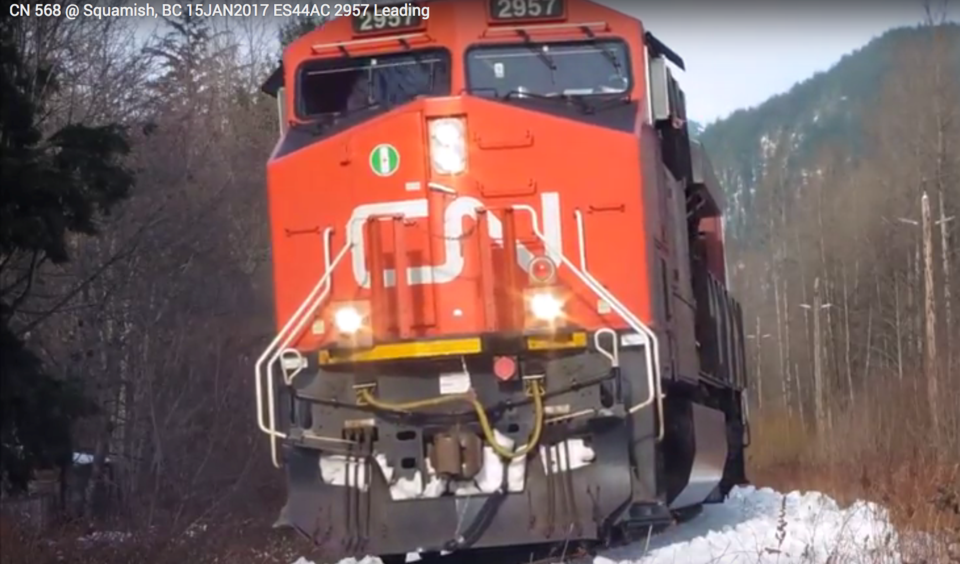If you don't like the noise, don't live by a railyard or rail tracks: that was the message given by a CN representative at a council meeting Tuesday.
The District submitted questions for the CN delegation prior to the public and corporate services standing committee meeting, including queries about crossing blockages downtown, noise at the railyards and on the tracks overnight, and transporting and storing hazardous materials.
Train idling and shunting in the North Yards during the night was the first topic to be discussed. Dylan Jansen, CN representative for the region, said policy mandates trains continue running after temperatures drop below 10 degrees Celsius, which can mean engines sometimes run for hours, even days at a time. A member of the public who attended the meeting but did not give her name suggested idling trains for that length of time was not good for the environment.
"For your interest, we have actually been named one of the most sustainable companies in North America. We won an award just recently," CN Rail manager of public affairs Josyln Young responded. "It's on our website. We are actually making great strides in that area, sustainable choices."
Noise from train whistles in the early hours of the morning was another concern.
"We don't get an ounce of sleep because of these trains that are whistling," said Squamish resident Jeff Lee. "If I get injured, is CN liable?"
"No, because we didn't choose where you built, where you chose to live," Young responded. "I have an issue with the real estate industry on that whole front."
Regarding whistleblowing, Coun. Susan Chapelle said she could appreciate that new housing has been built around rail infrastructure, but railraods going through towns is not new either.
"It's a health and safety issue for our citizens […] a lot of newborn babies in the downtown, and parents can barely cope with that, and having the whistles blow at two, three in the morning every single night is definitely an issue," she said.
Whistle cessation programs can be put in place, but they require upgrades to rail infrastructure. The mayor asked staff to report back how much such upgrades would cost.
Trains stopping at crossings, particularly the one at Buckley Avenue, was another hot topic of discussion. Jansen seemed surprised to hear about the blockages, noting that policies have changed since last summer and that he hopes those issues are fixed. Young responded to questions by asking the mayor what the District's plans are for improving infrastructure at that intersection.
"I've seen this multiple times where growth happens around a yard. There's suddenly an expectation that the activities of the yard change or don't take place anymore," she said. "You've got a community growing up near the railroad track, and you've got the railroad track just trying to run their business, and it's about finding that balance, right?"
The mayor also asked whether any hazardous materials were coming through Squamish. Contents of the containers are not determined by CN Rail, but hazardous materials may pass through Squamish was the answer.



